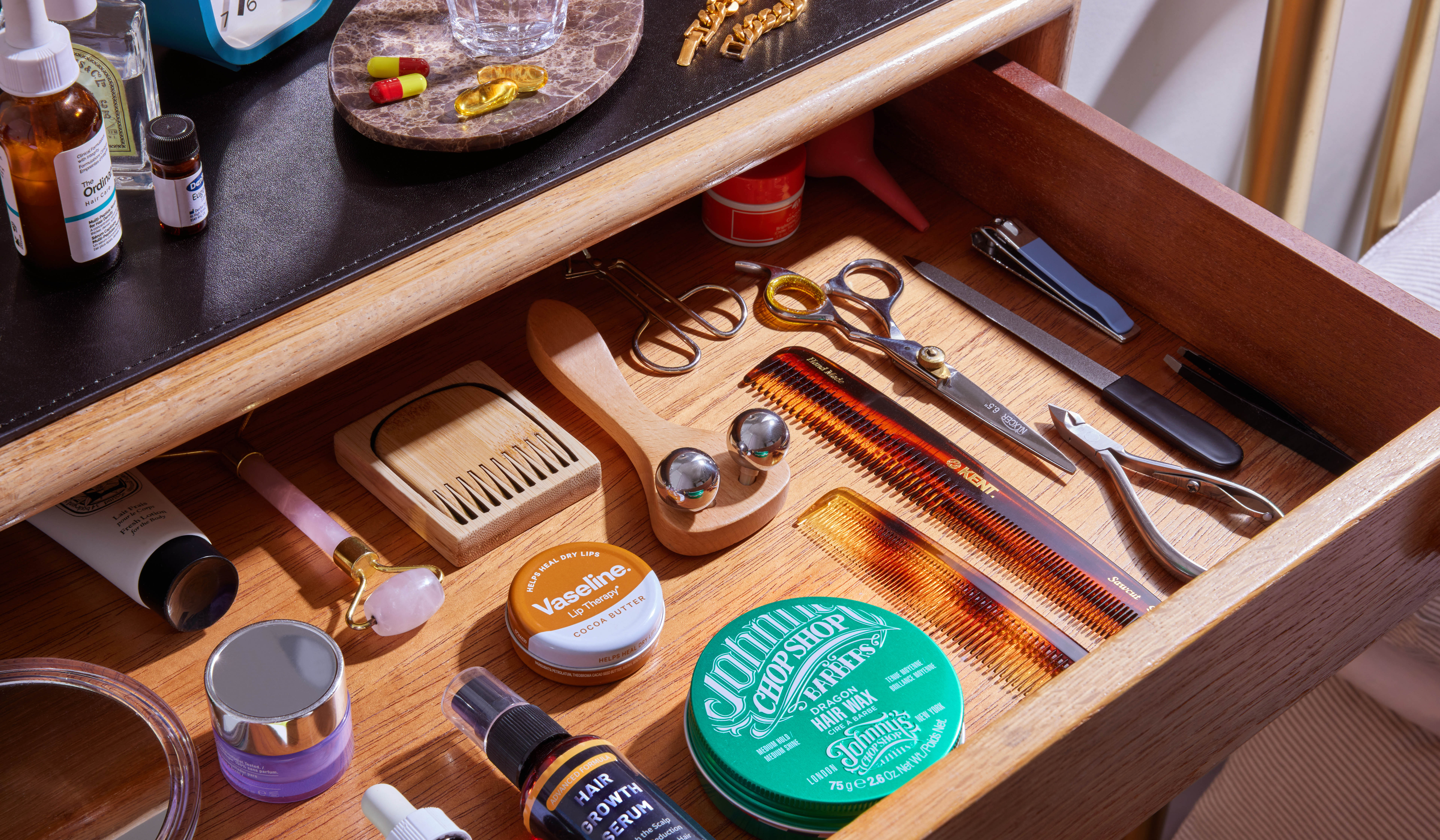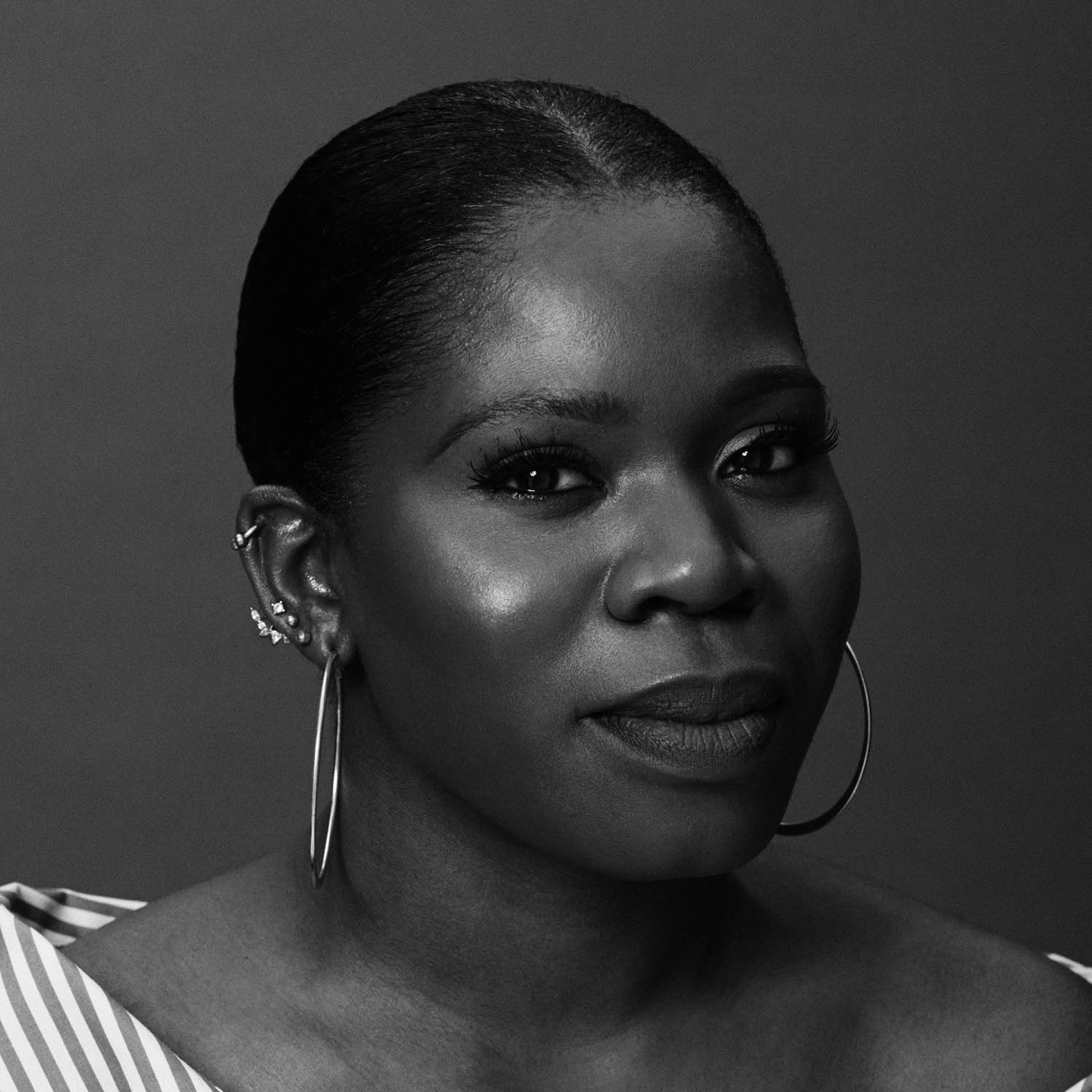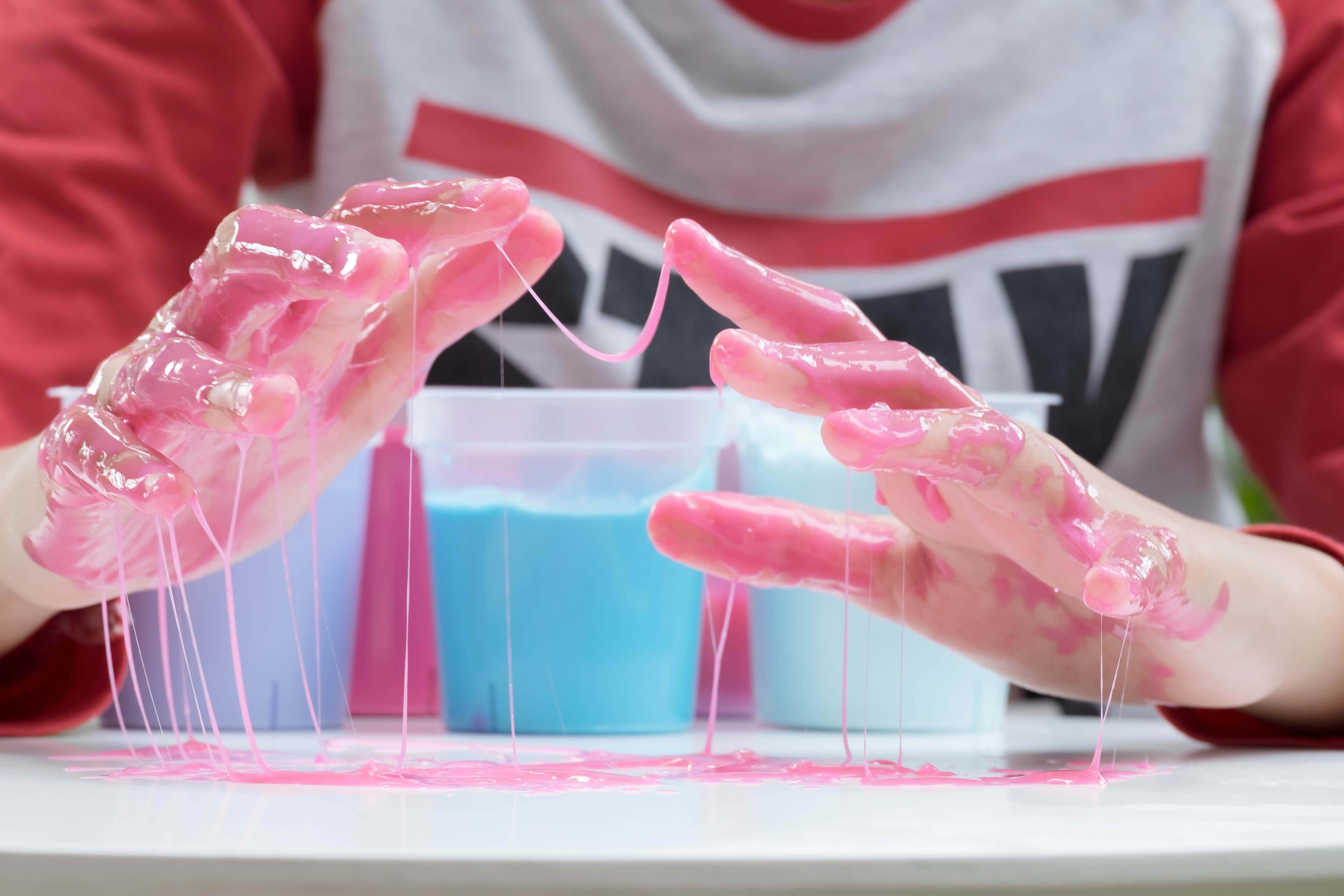Photograph by Shaw + Shaw
There was a time when the bar for male grooming was spectacularly low. A man brushed his teeth, had a shave, remembered deodorant and was applauded as though he’d invented penicillin. Anything beyond the purely functional met not with admiration but suspicion. “Too much” grooming was deemed vain, dangerously feminine and, heaven forbid, an indicator of sexuality. Meanwhile, women were expected to commit to the full-time labour of beauty. Hence the depressingly common sight of immaculately turned out young women draped on the arm of wealthy older men who looked like they’d been dragged through a bush backwards.
Now, there is a growing recognition that moisturiser is not a weakness, a pedicure is not emasculation, beard oils are not a conspiracy. Hair transplants are currently booming because absolutely no one wants sleepy follicles. So gentlemen, welcome to the beauty club. Though let’s be honest: most of you were always members. You just pretended not to be.
Today the industry, projected to be worth $129bn by 2032, is populated with products, brands and personalities reimagining male beauty through a modern, expansive lens. Men themselves are leading much of this charge. Harry Styles’s Pleasing brand includes nail polish, lip balms and fragrance. The musician Pharrell Williams, who is also Louis Vuitton’s menswear creative director while running his own skincare brand, Humanrace, is famously ageing backwards. Former model Roger Dupé founded Melyon, inspired by his Scandinavian and West African roots, to meet the needs of melanin-rich skin. Aesop alum Daniel Bense launched To My Ships, a personal care brand whose deodorants are so chic they elevate armpit maintenance into an aesthetic pursuit. Horace, meanwhile, offers the full men’s grooming wardrobe; exfoliators, concealer, vitamin C serums, SPF (there’s nothing “manly” about premature ageing and skin cancer).
Gentlemen, welcome to the beauty club. Most of you were already members, you just pretended not to be…
Gentlemen, welcome to the beauty club. Most of you were already members, you just pretended not to be…
Like most people, men want nicer, healthy looking skin, they don’t want to be alarmed every time they catch sight of their reflection and would also prefer that their products worked and weren’t housed in packaging so ugly it makes their teeth hurt.
Fragrance, too, has had a quiet revolution. The migraine-inducing colognes potent enough to anaesthetise a small village are no longer omnipresent. In their place: nuanced scents that are as wearable for women as for men. Hermès Colognes, Prada Rhubarb, Chanel Bleu – I wear them, my husband wears them, nobody keels over. That’s progress. And if that means a man chooses to dab concealer under his eyes – not because he’s lived through three world wars but because he stayed up late bingeing Netflix – then I’m here for it.
On my radar: three winning ways to transform your skin
Body beautiful This range of body washes has been formulated with as much care as a product you’d use on your face. It is antioxidant-rich and includes jojoba oil and hyaluronic acid, so the infusion of moisture will transform rough, dehydrated skin to something much more palatable. Oh, and the scents are glorious: Black Rose and Oud, Bergamot and Hinoki, Santal and Vertiver, Neroli and Basil. Salt & Stone Body Wash, £36, Salt & Stone
Super smoothie Proven to smooth skin in as little as seven days, this small but mighty multitasker of a product is genius. Powered by glycolic acid, it dissolves dead skin cells, smooths rough patches, unclogs pores and even tackles ingrown hairs. The perfect travel companion. The Inkey List Glycolic Acid Exfoliating Body Stick, £15, The Inkey List
At the double People in the know think of AKT as the brand with natural deodorants that actually work. They have recently introduced a body oil full of vitamin E, squalane, sweet almond and rosehip, which hydrates, nourishes and imparts a subtle and ungreasy sheen. It also doubles as a massage oil. In petitgrain, mandarin and neroli, or cedar, eucalyptus and orange. AKT The Encore Body Oil, £35, AKT London
Newsletters
Choose the newsletters you want to receive
View more
For information about how The Observer protects your data, read our Privacy Policy



